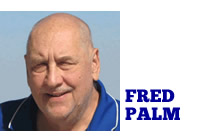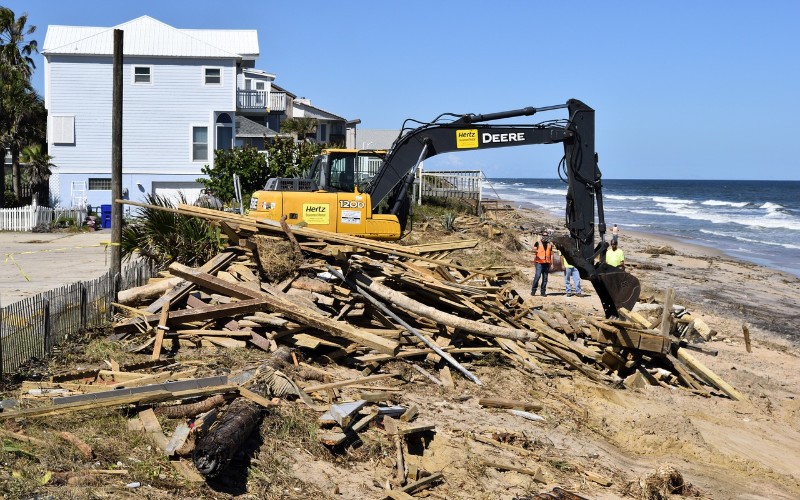By Fred Palm, contributing editor | The City of Charleston is required to identify severely flood-damaged properties so that if the damage is extensive, the properties are removed from the floodplain and, if not, they are brought up to a higher level of resilience to better survive the next flood event.
 This is a long-term, common-sense strategy to correct past planning and building decisions that did not work with increases in flood events and to lessen the replacement cost borne by all taxpayers. This also is a “common good” policy offering transition. Carried out over decades, owners are to be compensated for their losses, at-risk housing is removed from the floodplain, and we get to live in a more resilient community.
This is a long-term, common-sense strategy to correct past planning and building decisions that did not work with increases in flood events and to lessen the replacement cost borne by all taxpayers. This also is a “common good” policy offering transition. Carried out over decades, owners are to be compensated for their losses, at-risk housing is removed from the floodplain, and we get to live in a more resilient community.
Unfortunately, the sensible policy is not being done well enough and treated more on a par with sloppy housekeeping by the city. The spokesperson says, “The city acknowledges, and officials say they are re-evaluating their previous findings. It’s unclear how long it will take to retrace those past missteps and find these flood-prone homes.”
Translated: We will get to it when we get to it — and the tipoff is that this is going to be a long story.
Private-sector data services sell insurance companies and other municipal investors estimates of asset losses (including people and families) using satellite imaging, land typology measures and atmospheric data to show where high water will go under different scenarios of sea surge, downpours and river-stream-creek flooding. This is how insurance companies calculate their future flood risks to minimize losses for their investors. We should do the same for the taxpayers but do not. It is possible to go back and draw a ring on the map to say where to look for the recent flood damage.
Ray Farmer, South Carolina’s state insurance director, is also ringing another five-alarm bell. In recent days, he said we have way too little flood insurance here. Communities rebuild with the proceeds of flood insurance payouts and that is why having a high-level of in-place flood insurance is important and of great concern.
The Charleston area reportedly has the highest concentration of assets and people in South Carolina having a low level of in-force flood insurance. This represents a huge financial risk to individual municipal cities and towns, counties as a whole and the state. It is not being addressed.
We can all understand being uprooted by too much water coming at us from three directions — up, down and sideways — is traumatic, disruptive and hurtful. Carrying on in place and rebuilding is what we say and is spoken in most disasters.
The driver for the owners of flood-damaged properties is obvious. Flooded properties are valued less, those in proximity also have their values decline and thus all have an interest in not making noise about the lack of flood protection. The goal of nondisclosure is to keep the existing market values. Keeping quiet is the method. The flood data maps at this link shows valuation declines spread across a wide area far from the impacted flooded properties. Some studies estimate flood-risk properties are valued at about 7 percent less than those not at risk for flooding..
In the case of local governments, declines in valuation lead to two undesirable outcomes: declining tax revenues and shifting the tax revenue shortfall onto remaining taxpayers through the obtuse millage computations to finance the existing general fund and infrastructure budget.
Since Hurricane Hugo struck, we have much more to lose the next time and need to protect this inheritance we love. Next time, the damage calculation will be much higher with too little in place to rebuild.
Pure and simple, we should develop an effective flood protection plan to protect our residents, lessen the water damage, counter flood insurance premium increases and innovate the coverage provisions that includes identification of the damaged properties that we cannot find.
Fred Palm of Edisto Island is a retired professor of oversight and investigations at the John Jay College School of Public Management and a former executive director of the Association of Inspectors General. He writes about the Common Good.
- Have a comment? Send to: editor@charlestoncurrents.com




 We Can Do Better, South Carolina!
We Can Do Better, South Carolina!
























